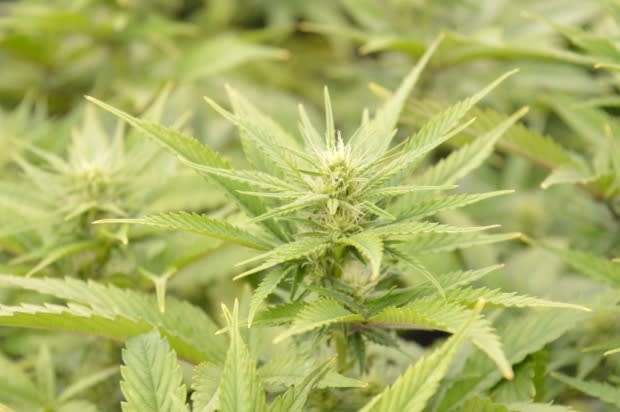Province taking an 'odd' approach to privatizing cannabis sales, says professor
An Ontario business professor says New Brunswick should consider allowing cannabis retailers to sell their product within other stores, rather than forcing operators to sell their product in stand-alone locations.
Michael Armstrong, an associate professor of operations research at Brock University in St. Catharines, Ont., said it's difficult for stand-alone stores to stay afloat in a province like New Brunswick.
"You have a relatively small population that's relatively rural, so it's difficult for a stand-alone store to make money," Armstrong said.
Cannabis retailers in Nova Scotia and Newfoundland have fared better because they've opted to allow retailers to sell cannabis within another store, typically a liquor store.
"They don't have a lot of fixed costs to cover that way, which means they don't have to sell very much cannabis."
Cannabis sales in New Brunswick have trailed other provinces in recent months. In the second quarter of this year, sales were $10.7 million, which was a $1.5 million loss.
Third-quarter results for Cannabis NB sales will be released later this month, but the company told CBC News that sales totalled $4.9 million for December 2019.
The province issued a request for proposals in November for a single private operator to take over sales.

On Monday, the government released the names of eight private operators that submitted proposals to obtain a legally backed monopoly on cannabis sales.
The eight companies that submitted proposals are:
Canopy growth Corp.
Fire & Flower Inc.
Green Shop Cannabis Ltd.
Kiaro Brands Inc.
Loblaw Companies Ltd.
New Brunswick Association of Cannabis Distributors
RSL NB
YSS Corp.
The government will evaluate the proposals and is expected to announce a single private operator in the spring. After that, the government will begin negotiations on a deal with the successful bidder. If negotiations fail, the government will explore other options.
Armstrong said the New Brunswick government's decision to offer a private operator a monopoly is "a very odd approach for a government to take."

Other provinces have opted for a public-sector monopoly and placing the government in charge of sales, or have turned cannabis sales over to the private sector and are relying on competing retailers to maintain a stable market.
"If you have a private-sector monopoly, then you have neither of those checks on the system and that could lead to problems."
Switch to privatization won't solve problems
Armstrong doesn't think the switch to privatization will improve New Brunswick's market.
He cautioned that without a change in government legislation allowing cannabis retailers to sell their product within an existing store like NB Liquor, the private sector will face the same problem selling its product.
"Unless the government wants to change the legislation, it's still going to face the same problem. How do you sell enough cannabis from a stand-alone store to make business?"
Armstrong also said the switch to privatization will likely leave the black market with a larger share in cannabis sales.
"There's still a black market in New Brunswick just like every other province and just like in every other province the legal industry has to compete against that," he said.
"The black market will just keep on serving whatever the legal industry doesn't or cannot profitably serve."


